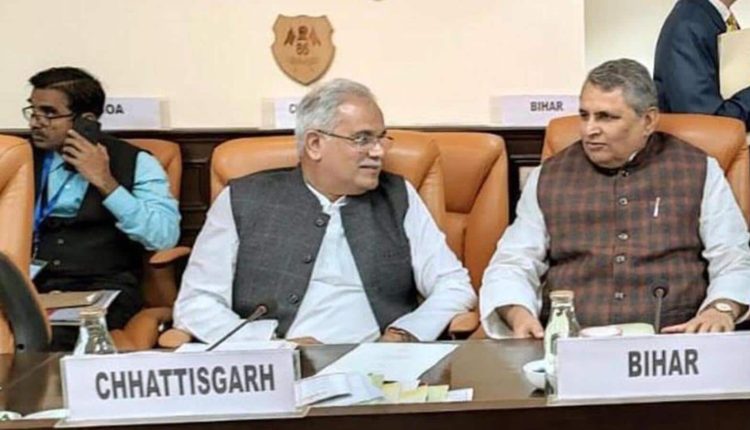A day after seeking the special status for Bihar at the pre-budget consultation meeting chaired by union finance minister Nirmala Sitharaman in New Delhi, state’s finance minister Vijay Kumar Chaudhary Saturday said the central government should realign taxation on petroleum products so that respective states get the benefit from their sale in the state.
Talking to HT over the phone from New Delhi, Chaudhary said the central government has reduced the excise duty on petrol and diesel and increased the cess and surcharge on them instead, so as to ensure that the lion’s share of the revenue is kept in the indivisible pool and remains with the centre only. “Only the revenue from excise duty on petrol/diesel, which has been kept under divisible pool, is disbursed among the states,” he said.
Chaudhary said the central government has altered the taxation regime on petrol/diesel and increased the cess and surcharges to form as high as 92-95% of its total revenue collection from fuel and lowered the excise duty, whose revenue has to be shared with states, by around 90% to ensure that it received maximum gain from the sale of automobile fuel in any state.
“The central government has kept only 5-7% of tax realised from petrol/diesel under the divisible pool in contravention to the recommendation of the finance commission, which clearly stipulates that 41% of the central taxes should be distributed among the states,” said Chaudhary.
Questioning the rationale behind imposition of cess and surcharge for such a long period on petrol and diesel, Chaudhary said, “Cesses and surcharges are meant for a definite period and for definite targets. But various cesses have been continuing for 40-50 years. Cesses and surcharges, which are collected by the centre and not shared with the states, should be put in the divisible pool so that all states shall benefit from it.”
Explaining how the cess and surcharges are spoiling the tax collection to the states, the minister said that till April 2017, 44% of the excise duty on petrol was kept under divisible pool, while the rest 56% was in the non-divisible pool (which adds to the revenue of the Centre only). “But in April 2021, excise duty under divisible pool got reduced to only 4% while non-divisible cess and surcharge went up to 96% on petrol. Similarly, the excise duty shareable with the state has been decreased to 6% from 65% over the same period on diesel, the cess and surcharge (in non-divisible pool) on it has been jacked up to 94% from 35%,” said Chaudhary.
The minister argued that either the central government should put the cesses and surcharges under divisible pool as per Article 270 instead of the current practice under Article 271 of the constitution or abolish it in larger interest of the states.


